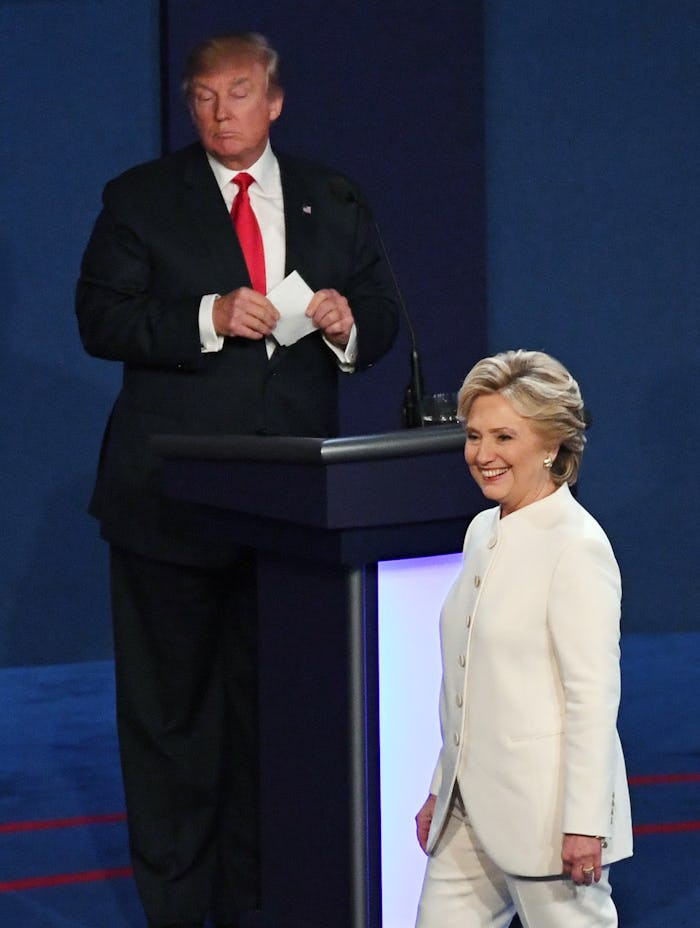News

What Happens In A Contested Election? The Losing Candidate Goes To Court
The guiding democratic principle "that the loser concedes to the winner and that the country comes together, in part for the good of the country" isn't at all guaranteed this election. In the final presidential debate, Republican nominee Donald Trump made no promise to accept final election results, later adding at a rally: "I will totally accept the results of this great and historic presidential election — if I win." But what exactly would happen in a contested election, if either Trump or perhaps even Clinton were to refuse to accept the final results? If a losing candidate believes that the election was unfair, or perhaps "rigged," as Trump puts it, they have to protest the result in individual state courts, which can be a lengthy process.
Citing a specific shortcoming (such as fraud), the losing candidate must then articulate their issue in court. Examples of potential issues include: "Claims that ballots were cast by people who weren't qualified to vote, absentee or overseas ballots were wrongly tabulated, or voting machines were improperly programmed," NBC News clarifies. Essentially, a losing candidate would insist to the court that the voting procedures were inept, asking that they be invalidated. What's more, the discrepancies have a relatively short timeline; Vote recounts and contesting the election must be resolved by five weeks after Election Day.
Politico has analyzed some potential election outcomes and how they relate to Trump's pledged refusal to accept a loss. By the estimations of Edward Foley, a law professor at Ohio State University, Trump's refusal to accept the nomination should hold little water if Clinton wins by a large margin. The possibility that Clinton and Trump are close in votes, Foley notes, is "the least comforting outcome, should Trump really put up a fight," because "the system we have for handling disputed elections can end up being highly partisan, which automatically complicates and prolongs efforts to resolve disagreements."
"Elections, it must be emphasized, do not end on the last day that ballots are cast and the polls close," Foley reminds. "They are officially over when the counting of all the ballots has been finally certified." Unfortunately, that means that this election could extend well beyond next Tuesday's Election Day.
In the event that Trump loses and therefore refuses to accept the results, he may prolong the election process. In order to do so, though, he would need a valid, backed, and concrete reason; A vague insistence of "rigging" is not enough. But as election polls tighten and the race gets closer, a contested election is looking like a likely possibility.